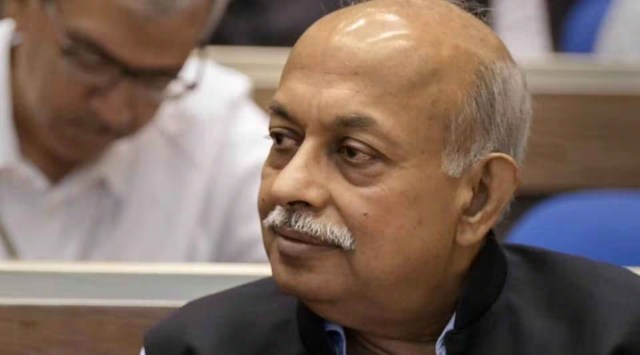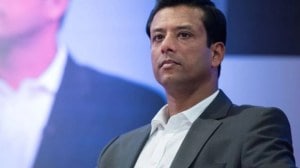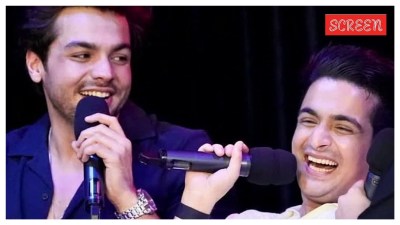Declaring as “not valid in law” the two tenure extensions granted by the government to Sanjay Kumar Mishra, Director of Enforcement Directorate, beyond the September 8, 2021 cut-off date it had fixed, the Supreme Court Tuesday said he can continue on the post only until July 31.
This cuts short Mishra’s stint as the ED chief. In November last year, the 1984-batch IRS officer was granted a second tenure extension up to November 18, 2023.

The bench of Justices B R Gavai, Vikram Nath and Sanjay Karol, however, upheld as constitutional the amendments made to the Central Vigilance Commission Act, 2003, The Delhi Special Police Establishment Act, 1946, and the Fundamental Rules in 2021, enabling the tenure extension.
The bench’s directions came on a clutch of petitions including those filed by Jaya Thakur of Congress and Mahua Moitra of the TMC.
In a Twitter post hours later, Union Home Minister Amit Shah said, “Those rejoicing over the Hon’ble SC decision on the ED case are delusional for various reasons: The amendments to the CVC Act, which were duly passed by the Parliament, have been upheld. Powers of the ED to strike at those who are corrupt and on the wrong side of the law remain the same.”
“ED is an institution which rises beyond any one individual and is focused on achieving its core objective – i.e. to investigate offences of money laundering and violations of foreign exchange laws. Thus, who the ED director is – that is not important because whoever assumes this role will take note of the rampant corruption of a cosy club of entitled dynasts who have an anti-development mindset,” Shah said.
Under Mishra’s watch, the ED moved swiftly on cases filed under the Prevention of Money Laundering Act, especially those allegedly involving Opposition leaders and their kin.
Story continues below this ad
In April this year, the Supreme Court declined to entertain a plea by 14 political parties which alleged “selective and targeted” use of Central probe agencies such as the ED and CBI by the BJP-led Central government against their leaders. The top court said it can intervene in individual cases when facts are before it, but cannot lay down separate general guidelines only for politicians who “stand absolutely on the same standing as the (rest of the) citizens of the country”.
On Tuesday, the top court allowed Mishra to remain on the post until July 31, taking into account the government’s submission that India is undergoing a Financial Action Task Force (FATF) review and his continuance in office is necessary for “effective presentation of the efforts made by the country”.
The bench also noted that the appointment of a new ED Director “is likely to take some time”.
It noted that the Supreme Court, in its September 8, 2021 ruling in the matter Common Cause (A Registered Society) v. Union of India and Others, had issued a “specific mandamus that no further extension shall be granted to” Mishra and that this “was binding on” the parties, one of which was the Centre.
Story continues below this ad
“We, therefore, find that the” Centre “could not have issued orders dated 17th November 2021 and 17th November 2022 in breach of the mandamus issued by this Court,” Justice Gavai, writing for the bench, said.
Mishra, who used to be Principal Special Director in ED, was appointed its Director on November 19, 2018, for a period of two years. On November 13, 2020, this was amended and made three years.
This was challenged by Common Cause. Although the Supreme Court dismissed the petition on September 8, 2021, it directed that no further extension be granted to Mishra.
Subsequently, the government amended the CVC Act and DSPE Act, giving itself the powers to extend the tenure of the ED Director and CBI Director.
Story continues below this ad
The changes to the CVC and DSPE Act were again challenged before the Supreme Court with the petitioners contending that it would defeat the directive it had issued in 1997 in Vineet Narain and Others v. Union of India and Another to have a fixed tenure of the CBI chief.
On amendments made to the CVC Act, DSPE Act and Fundamental Rules in 2021, the judgement referred to the need to exercise self-imposed limits while undertaking judicial review of legislative or executive actions and said “it has been the consistent view of this Court that legislative enactment can be struck down only on two grounds. Firstly, that the appropriate legislature does not have the competence to make the law; and secondly, that it takes away or abridges any of the Fundamental Rights enumerated in Part III of the Constitution or any other constitutional provisions”.
It said “in the present case, it is nobody’s case that Parliament did not have power to enact on the subject on which the aforesaid Amendments have been enacted” and added that the amendments do not grant arbitrary power to the government to extend the tenure of the Director of ED or CBI.
The bench said that “what has been directed by this Court in the case of Vineet Narain… and in subsequent judgments… is that such Director should have a minimum tenure of two years irrespective of their date of superannuation. By the impugned Amendments, the said period is not tinkered with”.









